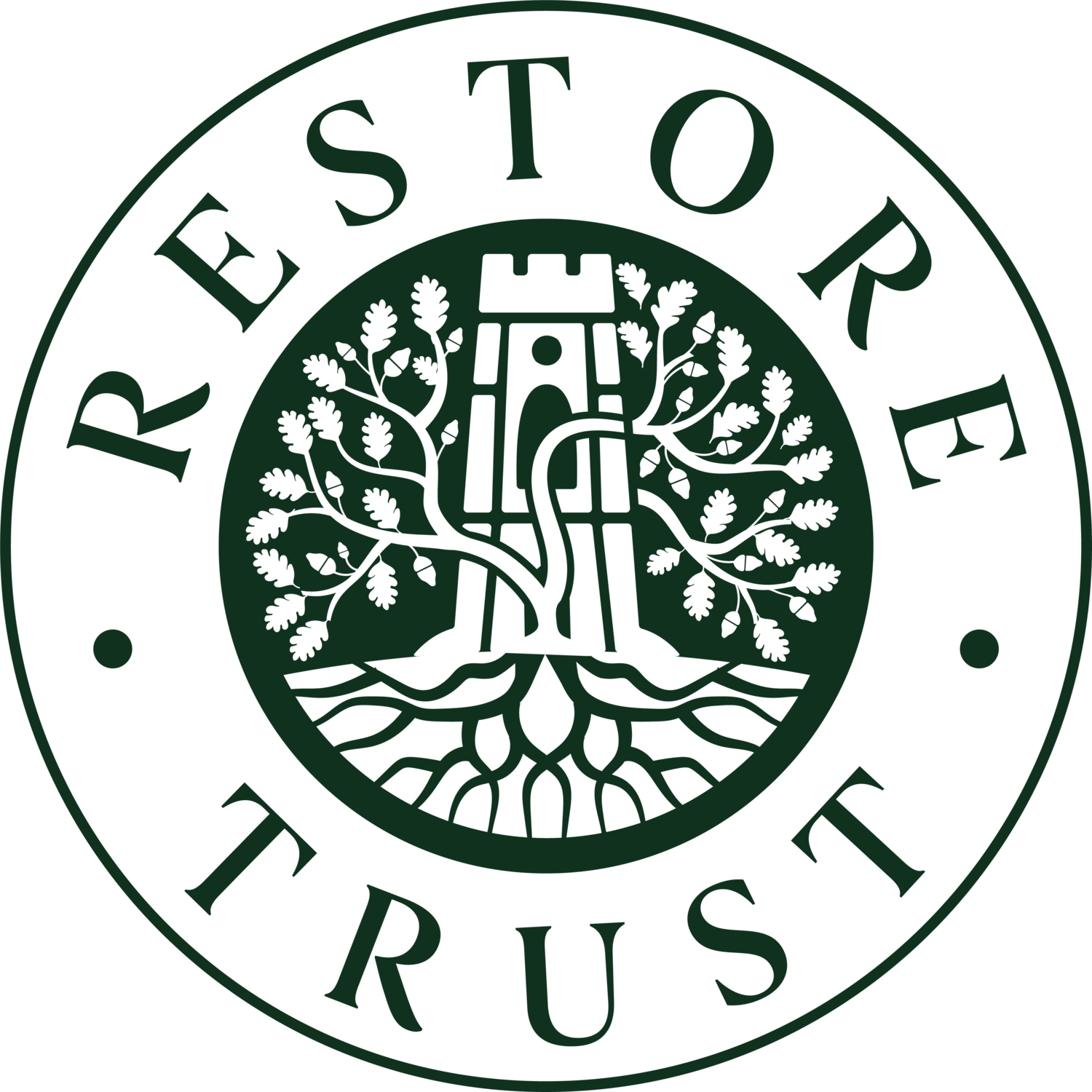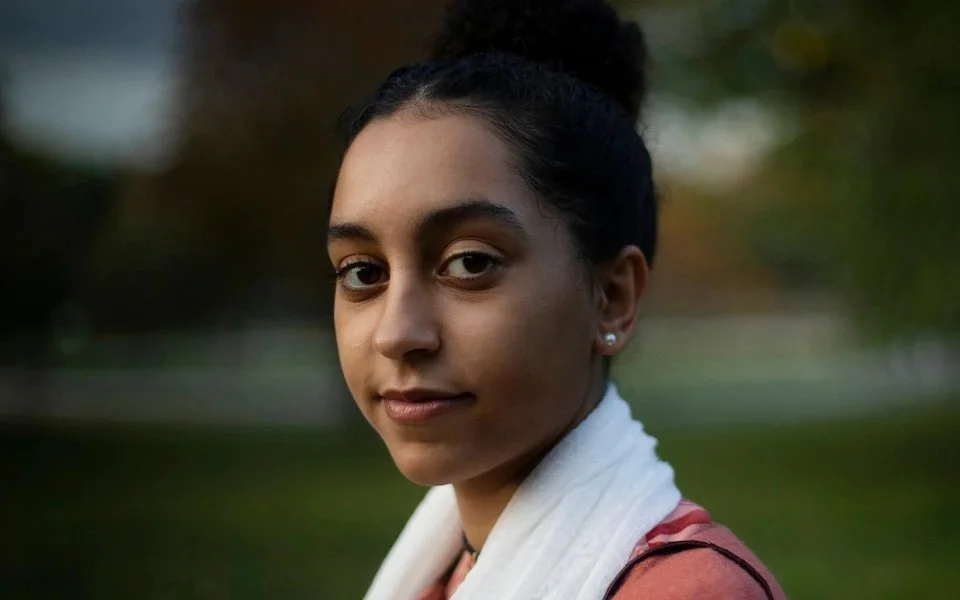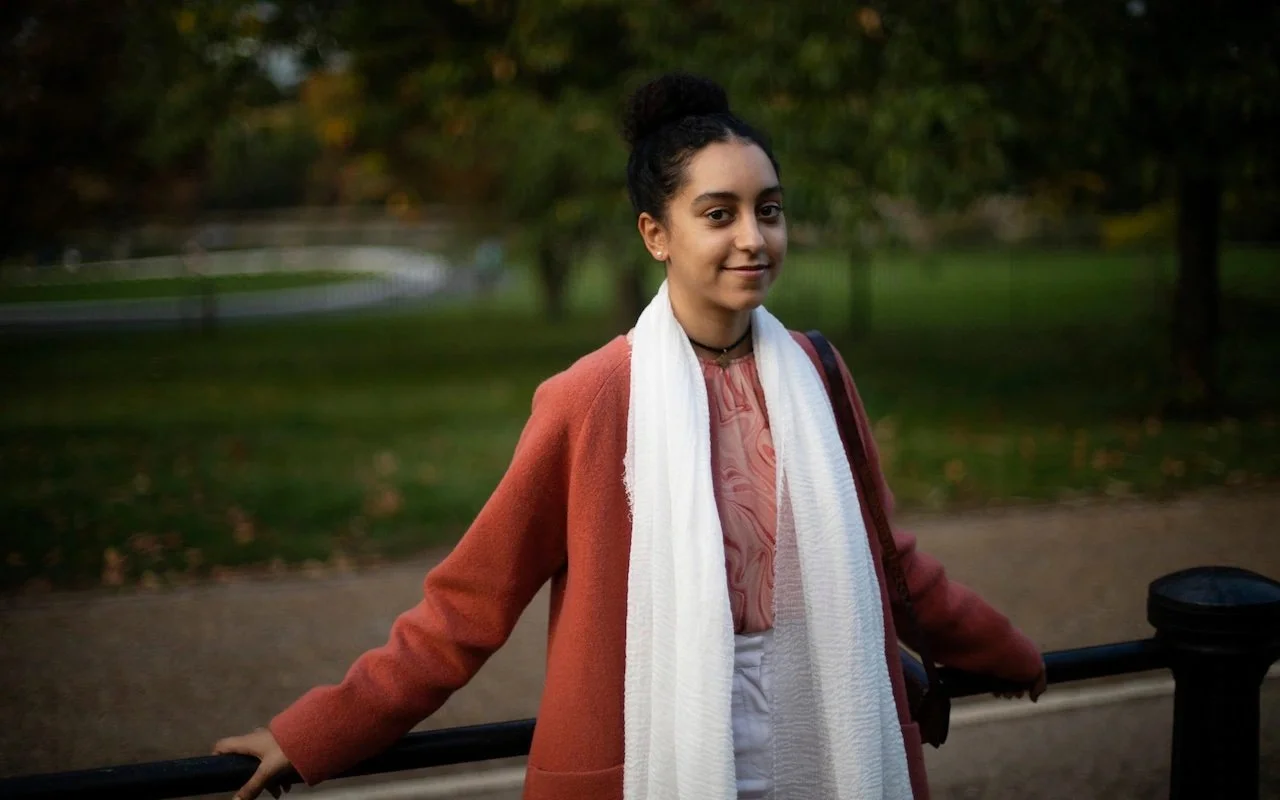Telegraph interview with Restore Trust Director, Zewditu Gebreyohanes
Simon Heffer | The Telegraph | 14 October 2022
This article was first published in the Telegraph on 14 October 2022.
Zewditu Gebreyohanes has a remarkable curriculum vitae for a young woman of 23, just two years out of university. She is director of Restore Trust, a pressure group set up last year to stop the National Trust acting in an overtly political way by seeking to obliterate traces of history and heritage from its properties. She was recently appointed a trustee of the Victoria and Albert Museum, to the outrage of leftists who saw her as a belligerent in the culture wars, branding her as seeking to stop the progress of “woke” in our institutions.
When we speak over FaceTime, Gebreyohanes is in her flat in London sitting in front of a shelf of books. She looks much younger than her age, speaks precisely and softly and is demurely dressed – she might just have started her sixth form at school. Yet for one so young she has a fierce determination to right what she believes are some of the wrongs of the culture wars.
And she has ruffled a few woke feathers. The Guardian has called her a “Right-wing commentator” (something she denies) and implied that she only got the job at the V&A through her connections with Boris Johnson or the government. “I’ve never met him in my life,” she tells me, “and it certainly wasn’t an appointment based on my connection with the Conservative Party.
“It’s an assumption based on ‘what boxes does she tick? She’s a Conservative, so she must have got it for political allegiance’. I applied, there was an interview. I love the V&A. I have had an interest since childhood in drawing and designing. I paint but I sketch more. My hobbies are mainly artistic. Designing clothes, sewing, things like that.”
Restore Trust is on the march, ahead of the next National Trust AGM on November 5, when it hopes to have members elect their candidates to the trust’s council and to pass resolutions aimed at depoliticising the organisation. “There are over 19,000 on our mailing list, but that’s rapidly rising,” says Gebreyohanes. “We’ve just started a leafleting campaign. We get our money from trust members, or former members who are sad that it is not what it used to be – often people who have been members for decades.
“We get many donations through our website. But whenever the trust attacks us it talks about ‘the privately funded Restore Trust’. I think it’s good that we are sustained by donations from people all over the country who simply want the trust to return to what it ought to be doing. We’re not rich, but we get enough to do the things we need to do. It genuinely is a grassroots organisation, and we rely on hundreds of volunteers.”
One of four children, Gebreyohanes has an Ethiopian father and an English mother. She went to school in Devon but, until the age of 10, she was home educated. “I think when you’re home educated at such a young age it gives you a great foundation, because you have more time to read outside the traditional curriculum – so you spend a lot of time reading encyclopaedias and history books and things you wouldn’t normally find time to do at school. She graduated from King’s College London with a first in politics, philosophy and economics.
For one so young she has firmly formed opinions. “My world view is let’s respect the past, and respect things like community, family, nation. And my faith [she is Ethiopian Orthodox Christian] is important.”
At King’s College, she joined the Conservative Association. “I don’t agree with everything the Conservative Party does and I wouldn’t say I’m a zealot, but the word ‘conservative’ reflects my philosophy on life – I like conserving things, whether it’s traditions, or the countryside, or heritage.”
When she was 17 she met the philosopher Roger Scruton “by chance” when attending a conference. “It was a week before I was being interviewed by Oxford – I didn’t get in – and I asked him a question afterwards hoping for some advice. Then he sat down with me at lunch and said his son was having an Oxford interview, and why didn’t we keep in touch? So we exchanged email addresses, and he became a very close mentor and friend until he died.” She became director for student engagement at the Roger Scruton Legacy Foundation as soon as it was founded in 2020.
Her interest in the National Trust precedes her work with Restore Trust. “It has been part of my life since early childhood. I grew up partly in North Devon – my childhood was spent half there and half in London – my parents were members and we used to visit properties as a family and I loved it, Arlington Court [an 1820s country house near Barnstaple, built for the Chichester family] especially. I’ve been in London for the last few years and so haven’t visited trust properties as much lately – but I am still a member.”
After university she was introduced to Policy Exchange, a Conservative think tank, and ran the History Matters project, which tried to ensure that institutions were being run according to their founding charters. “Charles Moore [the former Telegraph editor] drew my attention to what was going on in the National Trust, but I was approached by [Oxford classicist] Cornelia van der Poll, from Restore Trust, who asked me if I wanted to become director. When I looked into their work it was exactly the sort of thing I was doing with History Matters.
“But the problem was far broader than culture wars. It was also about dumbing down, and not sticking to their founding principles of preserving houses forever. I thought there was much more scope to have a big impact.”
She reflects that “the problems of the trust date back a couple of decades, with its increasing commercialisation and bureaucratisation”.
She attacks commercialisation, arguing that “when you’ve got an institution that exists principally to raise profits, rather than having a genuine desire to preserve history and heritage, that warps the agenda. Would that really have happened if there were still heritage experts at the top? They wouldn’t even think of doing it”.
She agrees Covid gave the trust an excuse to fire an older generation who might have stood in the way of changes. “We’ve seen many of the worst things lately – such as the National Trust chairman endorsing Black Lives Matter. Factual information has been replaced by trendy interpretations of history, some of which are factually inaccurate. Although with a lot of heritage institutions Black Lives Matter was the trigger to make changes, with the National Trust it predates all that, though BLM gave it extra impetus. Their ‘Colonial countryside’ project [a ‘child-led’ history project exploring colonial connections to properties] started before BLM, and was all part of rewriting history.”
I ask her about the “woke” movement and its plans for the forcible re-education of the population. “The problems of the trust go far beyond woke or non-woke,” she says. “Volunteers used to be given tea parties to thank them for all their work, now that’s mostly been stopped – that’s the trust’s management trying to cut costs, even when it undermines their charitable status.”
Her “number one example of things going wrong” is also unrelated to wokery: it’s related to Clandon House, Lord Onslow’s house in Surrey that was gutted by fire in 2015. Initially, the National Trust said it would restore the state rooms on the ground floor, but now want to keep part of it as a ruin.
“Seven years later, even though they’ve taken the £66.3 million in insurance money, they’re not going to restore the interior. The trust say they wish to preserve instead the ‘raw power and poetic beauty’ of the ruin and create ‘a unique experience’ so they are going to build concrete walkways and a glass roof to highlight ‘the evocative spaces created by fire’.”
A target for the woke brigade was Winston Churchill’s country house. ‘The fact Chartwell was even raised in the slavery report as being a dodgy property is completely ridiculous. As Charles Moore has pointed out, slavery and colonialism are not the same thing. There are good things and bad things about the British empire. If slavery is part of the history of the property then, fine, say it, objectively. But the fact that they got an activist rather than proper historians to do the report shows they have an agenda. It’s not about educating people. This was about skewing history so that it’s very anti-British.”
She knows that the National Trust finds Restore’s persistent criticism of the obsession with colonialism peculiar, but explains why it continues. “Hilary McGrady [the director-general] and her colleagues have never accepted they shouldn’t have done it. Until they acknowledge they shouldn’t have done it then we have to keep raising it, because it shows their mindset hasn’t changed.”
There has been criticism of Gebreyohanes in the media, and I ask whether it has affected her. “No, it doesn’t upset me, but I think it’s sad, not because it’s against me, but because it shows the level of debate,” she replies. “What really depresses me is that the National Trust management spends so much time attacking us on social media but won’t have a debate with us on radio or TV. If they’ve got nothing to hide, why wouldn’t they say yes? Then the public can make up their minds about who’s in the right. They might think Restore Trust are a bunch of nutters but, if so, why do you spend so much time on social media attacking us?”
She identifies particular adversaries including Jan Lasik, the secretary of the National Trust, who challenged Restore when it alleged there was a democratic problem with the trust. “He was being hugely disingenuous. There is a huge democratic problem with the National Trust, using the chairman’s discretionary proxy vote. They are trying to suppress dissent.” As the AGM nears, the question becomes urgent again. “The deadline for members to submit their voting papers is October 28 – otherwise they can’t vote or attend. But if you are only interested in one or two resolutions and don’t vote on the rest, the chairman can by proxy cast your vote.”
“Another example is this quick votes thing. When members got their voting papers this year there was a ‘quick votes’ box which, the small print says, if you tick it means you agree to the election of all the council’s approved candidates, and vote their way on all resolutions. It’s appalling. Since the council line is to vote against all resolutions, this is a very anti-reform thing. They want to do anything to thwart us. The really dodgy thing is that they claim they introduced this quick vote thing because members asked for it, which is really weird, because they never consulted members.”
And she feels the high-handedness continues. “What’s dangerous, and what the NT should not do, is what McGrady did the other day, saying she would mobilise her 5.7 million members and implied that all members agree with her that fracking shouldn’t happen. It’s this assumption that all the members support you, and you represent all the members. There are issues closer to home it should deal with rather than fracking. It wasn’t founded to question government decisions. It was founded to carry out its mission of preserving national heritage forever.”
The AGM will be crucial to Restore’s future. “There are seven vacancies on the council and we have put forward seven candidates. If they are elected there will be a shift from people who simply rubber-stamp decisions to people who will look on proposals with a critical eye. There won’t be a majority, but there will be some influence.” There are resolutions to end discretionary proxy votes and to appoint an independent ombudsman.
“If,” Gebreyohanes says, “there were a replacement of some senior management in the trust by people who believe in what the trust is actually for, there would be a sea change. I don’t believe McGrady is leading this – she is condoning it, she is letting it happen – but the people around her are. It would just be good to have a check that the people running the NT really have its best interests at heart.” She doesn’t know René Olivieri, the trust’s chairman since February, “but I think it would be very interesting to have a discussion with him. A speech he made seemed to suggest he disapproved of the rewriting of history, so I’d like to talk to him.”
We talk about the wider culture wars, particularly among her generation. “You would expect that universities are the number one place you would go to hear a free exchange of ideas,” she says. “The level of debate is really going down because of censorship. Anyone who needs a safe space shouldn’t be at university. University is not for the weak-hearted, it’s not for people who can’t handle debates.
“I think reducing things to ‘woke’ and ‘anti-woke’ has been very bad for debate. It leads to arguments not being addressed. With Restore Trust, people say ‘you’re anti-woke. You’re the bad guys’. Yes, we’ve said stuff about history, and that the National Trust have gone wrong there. But why would you disagree with us about the democracy stuff? Why should it prevent you from supporting us on Clandon House being a travesty? This business of labelling people is unhelpful.”
She adds that “cancellation in general is pernicious. If you know you’re going to be cancelled then you will be very fearful, and will just be toeing the line. It often means cancelling people who agree with most people in the country. It’s wrong because it sidelines whole swaths of the British public. So long as you’re not saying anything illegal, unless something is incitement, I don’t see why you should be cancelled. If a student society wants to invite a speaker, who has the right to stop that debate from happening?”
Before we finish, I ask her whether she may be a victim of the offensive presumption that a Labour MP recently applied to Kwasi Kwarteng in not taking a political line that the Left expect of a person of colour. “That’s very possibly the case,” she says.
“If anyone is doing that then it must be racist. In the 23 years of my life I have not experienced racism. Britain is certainly not a systemically racist country in my experience.
“But what is racist is when people say ‘because you happen to be from this background, you ought to be supporting the Labour Party’.
“That’s just patronising, insulting and racist. I never judge people on their colour. What am I if my father is Ethiopian and my mother is English. Am I grey?”



